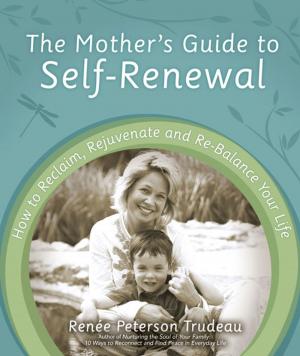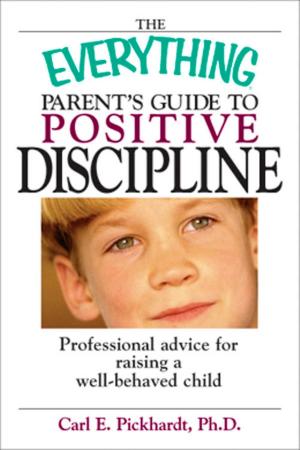The Family Capabilities Approach
Revisiting Amartya Sen’s Capabilities Approach in Light of the Family and the Principle of Subsidiarity
Nonfiction, Family & Relationships, Family Relationships| Author: | Jennifer E. Miller | ISBN: | 9788883334672 |
| Publisher: | EDUSC | Publication: | June 12, 2015 |
| Imprint: | EDUSC | Language: | English |
| Author: | Jennifer E. Miller |
| ISBN: | 9788883334672 |
| Publisher: | EDUSC |
| Publication: | June 12, 2015 |
| Imprint: | EDUSC |
| Language: | English |
What is “the good life”? How can it best be achieved? The attention of the 1998 winner of the Nobel Prize in Economics, Amartya Sen, to the human person and to the importance of realizing the good life has caused him to be described by one theologian as “the conscience of economics”. Known as the capabilities approach, his proposal, a now integral part of the United Nations Human Development Reports’ measurement of poverty, seems to ally itself with “the goal of rescuing peoples, first and foremost, from hunger, deprivation, endemic diseases and illiteracy” (Caritas in Veritate, 21), while not limiting itself to the topic of material underdevelopment but addressing the progress of society as a whole. However, a work engaging his thought with that of Catholic social doctrine has as yet been unwritten. This volume, therefore, seeks to fill that lacuna by first explaining and presenting Sen’s capabilities approach in a manner accessible to both amateur theologians and amateur economists; a simple yet thorough explanation of its basic aims and method introduce the reader into this manner of thinking about the social life. From the viewpoint of that "integral human development", which is at the heart of both "Populorum Progressio" and "Caritas in Veritate", his positive practical intuitions are then illuminated while the need for a more solid theoretical basis to ensure the good life that is truly the most human becomes more apparent. With the contributions of American and European theologians and economists, a family capabilities approach, overcoming his methodological individualism and focusing upon the family, civil society, and the principle of subsidiarity, proposes key concepts in the elaboration of “the good life” for all. Cajun by birth, Dr. Jennifer E. Miller has studied at the Pontifical Universities of the Angelicum and the Gregorian, as well as at the John Paul II Institute for Studies on Marriage and Family in Rome, obtaining her doctorate with a thesis in moral theology at the Pontifical University of the Holy Cross. She has taught courses on moral theology and business ethics in the United States and in Italy. Currently Directress of Studies at the Markets, Culture and Ethics Research Centre at the Pontifical University of the Holy Cross, Dr. Miller’s principle areas of research are the economy and the family
What is “the good life”? How can it best be achieved? The attention of the 1998 winner of the Nobel Prize in Economics, Amartya Sen, to the human person and to the importance of realizing the good life has caused him to be described by one theologian as “the conscience of economics”. Known as the capabilities approach, his proposal, a now integral part of the United Nations Human Development Reports’ measurement of poverty, seems to ally itself with “the goal of rescuing peoples, first and foremost, from hunger, deprivation, endemic diseases and illiteracy” (Caritas in Veritate, 21), while not limiting itself to the topic of material underdevelopment but addressing the progress of society as a whole. However, a work engaging his thought with that of Catholic social doctrine has as yet been unwritten. This volume, therefore, seeks to fill that lacuna by first explaining and presenting Sen’s capabilities approach in a manner accessible to both amateur theologians and amateur economists; a simple yet thorough explanation of its basic aims and method introduce the reader into this manner of thinking about the social life. From the viewpoint of that "integral human development", which is at the heart of both "Populorum Progressio" and "Caritas in Veritate", his positive practical intuitions are then illuminated while the need for a more solid theoretical basis to ensure the good life that is truly the most human becomes more apparent. With the contributions of American and European theologians and economists, a family capabilities approach, overcoming his methodological individualism and focusing upon the family, civil society, and the principle of subsidiarity, proposes key concepts in the elaboration of “the good life” for all. Cajun by birth, Dr. Jennifer E. Miller has studied at the Pontifical Universities of the Angelicum and the Gregorian, as well as at the John Paul II Institute for Studies on Marriage and Family in Rome, obtaining her doctorate with a thesis in moral theology at the Pontifical University of the Holy Cross. She has taught courses on moral theology and business ethics in the United States and in Italy. Currently Directress of Studies at the Markets, Culture and Ethics Research Centre at the Pontifical University of the Holy Cross, Dr. Miller’s principle areas of research are the economy and the family















